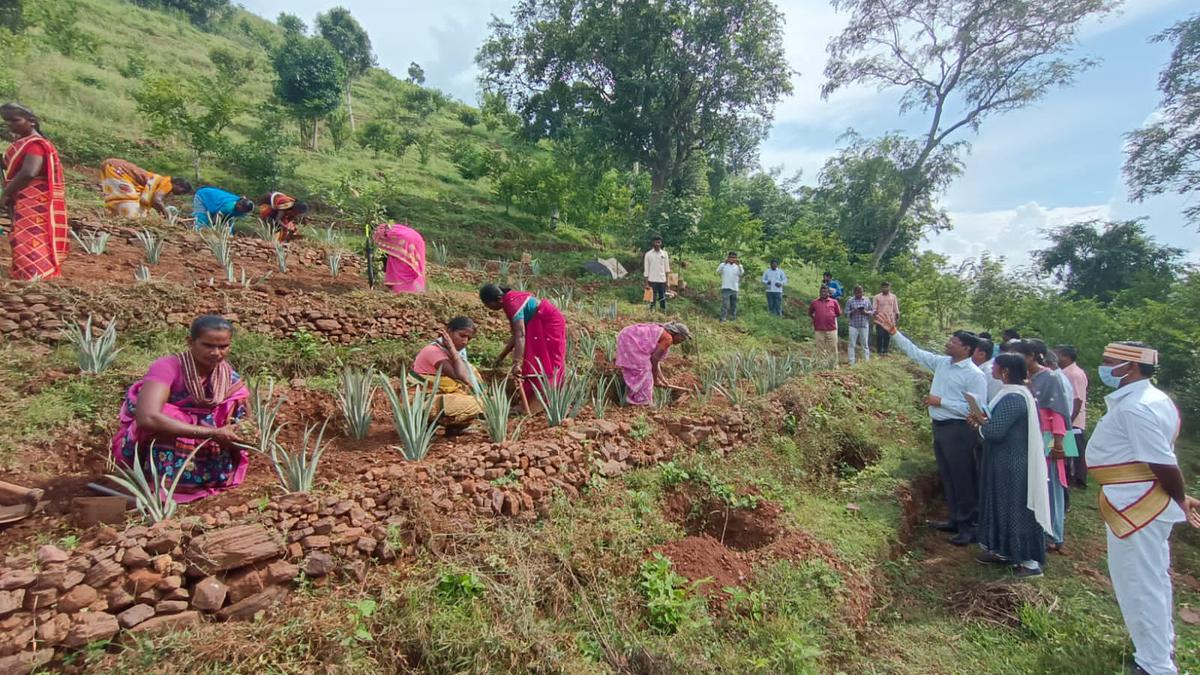
Scenic Jawadhu Hills in Tiruvannamalai is all set for T.N.’s first honey bee park
The Hindu
Scenic Jawadhu Hills in Tiruvannamalai is all set readied for T.N.’s first honey bee park
The scenic Jawadhu Hills in Tiruvannamalai is getting ready to have Tamil Nadu’s first honey bee park in Athipattu, one of the tribal hamlets.
The hamlet is located amidst deciduous forests on the ridges of the hills. A large tract of land and easy road accessibility made the hamlet an ideal spot for the unique park. .
Tribals, mostly women, have been engaged in various works like the formation of a series of rows to plant native tree species, two farm ponds, and a water harvesting system to collect running rainwater from the hills for these ponds. They work under the Mahatma Gandhi National Rural Employment Guarantee Act (MGNREGA) for many months.
“The park aims to bring back tribals in the hills to their native work— honey collectors. For non-tribals, the park will exhibit the key role played by honey bees in protecting nature,” M. Lavanya, Assistant Director (AD), Department of Horticulture, told The Hindu.
The horticulturist was correct, as most tribal families reared honey bees in the backyards of their houses in Jawadhu Hills two decades ago to supplement their income and provide much-needed nourishment. At present, only around 300 tribals are honey collectors in the hills, which have 272 hamlets in their 38 revenue villages and a population of over 30,000 residents.
Spread over 14.8 hectares, the park will have at least 32 native tree species of the Jawadhu Hills that are honey-generating varieties. Some of them are sacred trees: neem, jamun, magizham, poovarasam, tamarind, chinaberry, white bark acacia, black board tree, nagalingam, wood apple, Indian cork tree, golden shower tree, Geiger tree, Ber, desi murungai, Agathi, and yellow ball tree.
These saplings are being planted on a six-hectare plot in the park. Collector B. Murugesh, who spearheaded the initiative, inspected the upcoming park recently.













